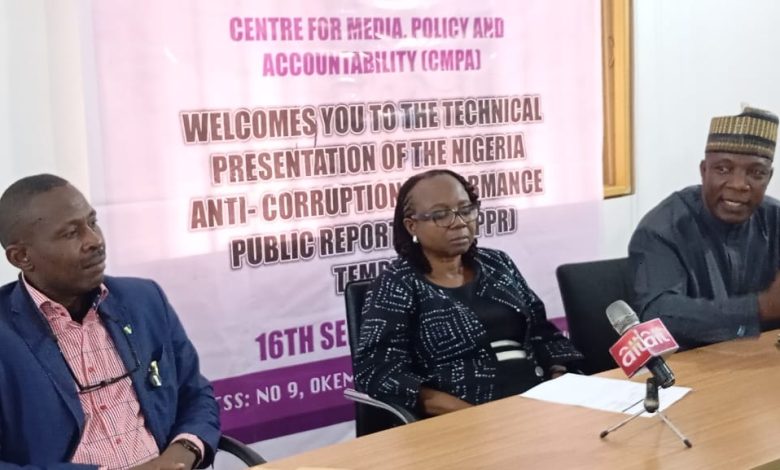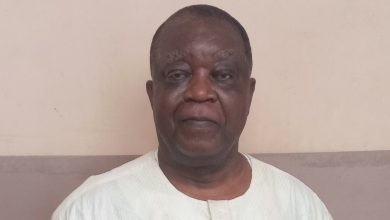Anti-corruption: CMPA charges EFCC, ICPC on data disaggregation

The Centre for Media, Policy and Accountability (CMPA) has urged the Economic and Financial Crimes Commission, Independent Corrupt Practices and Other Related Offences Commission (ICPC) and the Code of Conduct Bureau (CCB) to disaggregate their data as part of measures to boost their operations.
Suleiman Suleiman, executive director of CMPA, spoke in Abuja on Tuesday at the technical presentation of the Nigerian anti-corruption performance public reporting template (NAPPR).
According to him, such disaggregation would be in the interest of the anti-corruption agencies, the technical and international partners, the whistleblowers, the citizenry and other stakeholders.
“The NAPPR template recommends that data is clearly broken down into cases from systemic fraud, procurement corruption, cybercrime, and politically exposed persons (PEPs) like governors, ministers and others likewise cases.
To put this into proper context saying an agency ‘secured 2,000 convictions’ for instance means little if most of those were for petty fraud or those involving the ‘yahoo-yahoo’
“The public, and international partners, want to know how many of these convictions involved the PEPs? How many were systemic corruption, and, or how many were low-level scams like the popular yahoo-yahoo scams?
“The NAPPR template recommends that data is clearly broken down into cases from systemic fraud, procurement corruption, cybercrime, and PEPs cases. By separating minor infractions from major systemic interventions, the template encourages agencies to show exactly where they are making progress, and where challenges remain,” Suleiman said.
Presenting the report, Isah Ibn-Mohammed, a senior research and programmes fellow at the CMPA and PhD candidate in political science at the Nigerian Defence Academy (NDA), Kaduna said that the NAPPR project is essentially about enhancing the public reporting of anti-corruption performance especially by the Nigeria’s three leading anti-corruption agencies (ACAs): ICPC, EFCC and CCB.
He said the project, additionally sought to strengthen the capacity of relevant CSOs and media in anti-corruption performance reporting through advocacy and targeted capacity training.
He noted the importance of developing a harmonized Nigeria anti-corruption performance template, adding a layer of accountability to that CSOs and media, local ownership and promoting the idea of annual publication of anti-corruption performance among others.
Listing the key research findings, Ibn-Mohammed said that while significant numbers of cases were processed, most convictions focused on lower-level offences while high-profile political cases stalled.
He also noted that, while inter-agency coordination remained weak; the media coverage was dominated by scandals rather than outcomes, and rural communities were largely excluded from public education efforts.
“We recommend an Annual Anti-Corruption Performance Review and Policy Dialogue. Such an event will bring together all anti-corruption agencies, relevant government officials and institutions, civil society organisations, media, and other involved actors to discuss, deliberate and share ideas on anti-corruption policy, implementation and performance on annual basis,” he said.
Nimat Suleiman, the CMPA programme officer, said that while the formal launch of the NAPPR report was key, it was also for marking the close of a journey that began in 2023.
“This project has been about more than producing reports. It has been about building trust, strengthening accountability, and creating a practical framework for performance reporting that can support good governance in Nigeria,” Suleiman said.
She commended the MacArthur Foundation, whose support made the project possible as well as institutional partners including the TUGAR, CeFPI, CCB, ICPC, and EFCC for their collaboration, technical guidance, and commitment throughout the project.





